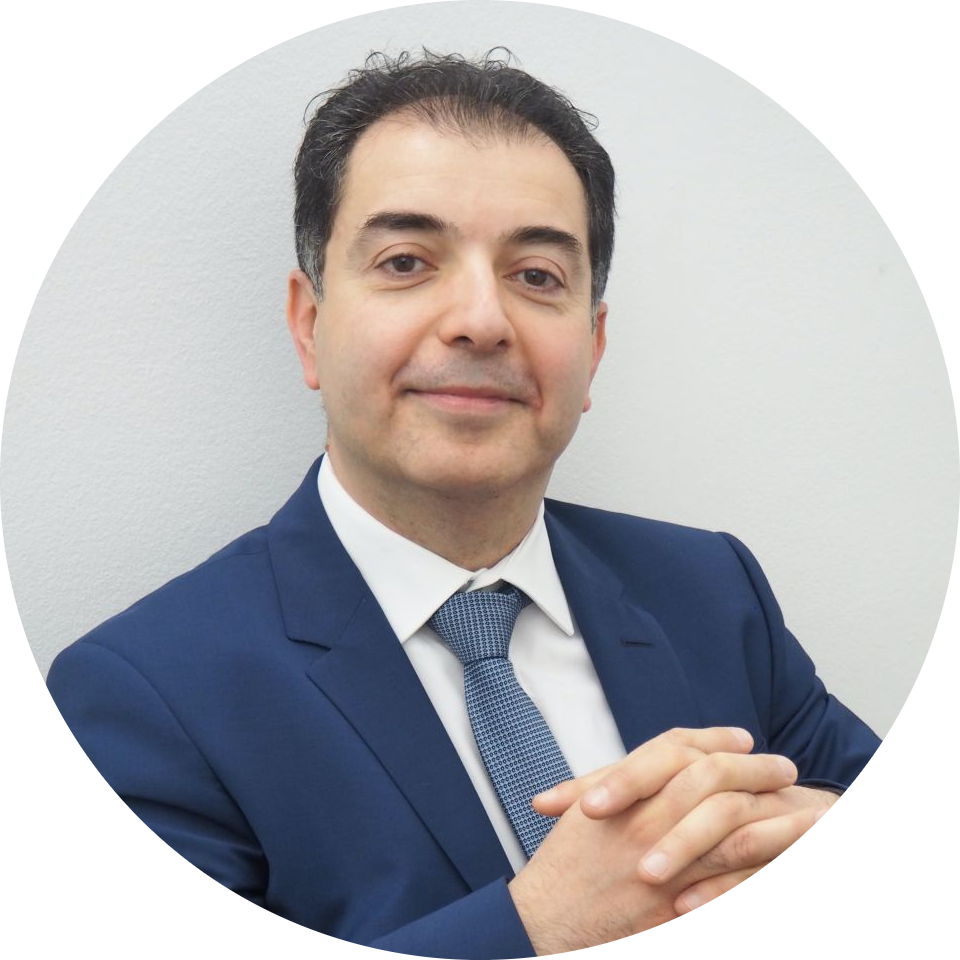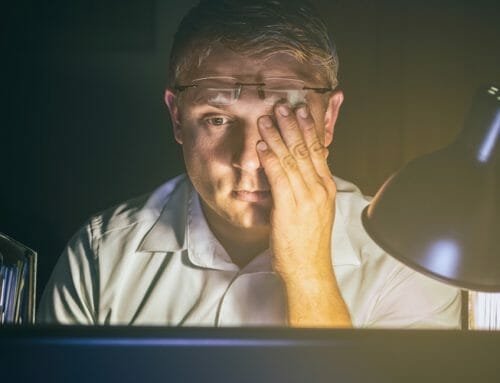What Is Myopia? (Short-Sightedness)
What is Myopia?
Myopia, also known as near-sightedness or short-sightedness, is a common vision condition that affects up to 1 in 3 people in the UK. If you struggle to see distant objects such as a vehicle’s license plate but can easily read them when you are up close, then there is a high chance that you have Myopia. The condition can occur at any stage during your life. The condition can start anywhere from 6 to 14 years old for children. If Myopia does not develop when you are a child, it can still occur once you are an adult.
Myopia causes
The cause of Myopia all comes down to the structure of your eye. It occurs when the protective outer layer of your eye (the cornea) is too curved, which makes it harder for you to focus on the light that enters your eye. Instead of focusing in front of the retina, they focus on the top of it. As a result, you will experience blurred vision. Myopia can also occur when your eyeball is too long. Although the exact cause of Myopia is not clear, many eye experts believe it comes down to a mix of environmental and hereditary factors.
Types of myopia
There are different types of Myopia that people can experience in their lifetime. Typically, most cases of Myopia are mild, and they can be easily controlled with the correct medical guidance. However, there are instances where more severe disorders can develop. These are High Myopia and Degenerative Myopia.
High Myopia
This is a rare inherited type of high-degree near-sightedness. This commonly occurs in children. The eyeballs grow longer than they should, and the cornea is too steep. It can progressively worsen between the ages of 20 to 30 years old. If left untreated, this condition can lead to severe medical issues such as blindness.
Degenerative Myopia
This is a rare but severe form of Myopia. It occurs in early childhood and can damage the retina, which is a leading cause of legal blindness.
Myopia symptoms
Like all medical conditions, Myopia can come with a list of symptoms, including the following:
- Headaches caused by eye strain
- Blurred vision when looking at distant objects
- The need to squint or partially close your eyes to see clearly
- Difficult to see at night (particularly when driving)
Myopia is a condition that is often detected during childhood. If your child is experiencing Myopia, they may show the following symptoms:
- Excessive blinking
- Persistent squinting
- Rubbing of eyes frequently
- A clear unawareness of distant objects
- The need to sit closer to a screen
Myopia vs Hypermetropia
Hypermetropia, also known as Hyperopia or long-sightedness, is another common vision condition. It differs from Myopia as this condition occurs in people who have far-sightedness. Instead of having difficulty seeing things from a distance, you have difficulty seeing things up close. Unlike Myopia, with Hypermetropia, the eyeball is too short, and the lens is not curved as well as it needs to be. This means that objects up close will struggle to focus correctly. The light that enters your eye focuses on the point beyond the retina instead of on top of the retina like Myopia.
For more information about the two conditions and how they compare, please read our article ‘Myopia Vs Hyperopia: What’s The Difference?‘
Myopia test
To successfully diagnose Myopia, you will need to undergo an eye exam. An optometrist will take the test. Your exam may include a range of different tests to help you detect possible distant vision problems. Your optometrist may need to measure the pressure inside your eyes alongside a visual acuity test. During this test, you will be asked to read from a chart with multiple rows of letters that gradually get smaller in size.
Your optometrist will determine what tests you need to undergo. If you feel like you, or someone close to you, could be experiencing this condition, it is important that you book an eye test at your nearest convenience. The quicker you can get a diagnosis, the faster you can work to treat it.
Myopia treatment
Most mild cases of Myopia can be treated with prescription glasses or contact lenses. These non-surgical treatments can improve your vision by helping light focus onto the back of your eye correctly. This will help distant objects seem less blurry. There are also surgical treatments that provide a much more permanent solution to Myopia, such as PRK and LASIK eye surgery.
PRK & LASIK eye surgery
There are two types of eye surgery that can help you treat Myopia:
PRK
This is one of the original forms of laser eye surgery. It is a quick and pain-free procedure that involves using a laser to reshape the cornea. It helps light enter your eye correctly and focus on the retina, providing clearer vision. You will no longer need to rely on glasses after this treatment.
LASIK
You may be familiar with LASIK as it is amongst the most popular forms of laser eye surgery. It is a quick treatment that involves reshaping the deeper layers of the cornea to provide a more precise and sharper vision.
Book an eye test today
If you feel like you could be experiencing Myopia, it is important to book an eye test at your nearest convenience. Here at Eye Clinic London, we offer a range of treatments for Myopia, such as PRK and LASIK eye surgery. We are proud to say that we have helped many patients better their sight over the years.
Our specialist team down at Eye Clinic London would love to help you on your journey to healthier sight. If you want to know how we can help you, please don’t hesitate to book a consultation today.
Share This Story, Choose Your Platform!
Suffering from dry eyes?
Take our 2-minute online dry eye assessment to see if we can help alleviate your symptoms and tackle your condition
Our most popular treatments
What our patients say…
“As soon as I met Mr Hamada, I knew I was in safe hands. He is an expert in his field, and very reassuring. His work was impeccable, and I would thoroughly recommend him to anyone wanting a professional, kindly, expert service.”
“I came all the way from the US to be evaluated by Mr. Samer Hamada who provided me with a world-class experience. I was treated with technology that doesn’t exist in the United States. My vision improved significantly since the surgery. Mr. Samer Hamada is definitely a Keratoconus expert.”
“I am glad to be with Mr Hamada. I am glad to be examined by Mr Hamada who acts responsibly and professionally. I never had this experience before from a previous ophthalmologist. I am thankful to Mr Hamada for the successful diagnosis and treatment of my case.”
“What a Consultant. Dr. Hamada is a man who was born for this profession. As soon as we walked into the room you felt that you had met a man who was gentle and kind. His demeanour was of a man who knew his trade. He speaks in a way that you will understand. He explains exactly what is wrong and the way he will help fix it for you.”
“Mr Hamada’s London Eye Care and his team are a delight. Nothing was too much trouble and the help, support, advice and guidance before during and after the surgery was all world class. I have worn glasses since the age of 13 years and had the onset of cataracts for the last five so it has all been very much a life changing experience to be free from glasses once more.”
“Mr Hamada, his assistant Joanna and his ophthalmic technicians provide a caring, efficient and high quality service. From the admin through to the surgical aftercare we were very well looked after and we had a high degree of confidence in Mr Hamada’s abilities. Our daughter’s cataracts have been corrected (under general anaesthetic) and her quality of life has improved substantially. You also feel well cared for throughout – the human touch is vital in healthcare, but not always delivered, so well done and thanks to all of the team.”
“We were referred to Dr.Hamada by one of the UK experts. The expert himself admitted that Dr.Hamada was better than him!! We were not disappointed at all. Dr. Hamada was excellent with my child. His communication skills and knowledge were exemplary. He gave us clear management plan and would not hesitate to recommend him.”
“Dr Hamada is an excellent, highly competent doctor with a very kind and sympathetic manner. His reputation for successfully treating dry eye patients seems unparalleled. His team are all extremely friendly and helpful, especially Dr Hamada’s PA Joanna, making the overall experience better than anywhere else I’ve been!”
“Appointment setting and follow-up were very efficient and well managed. Mr Hamada was kind, reassuring, knowledgeable and had a very warm manner with my young son, making him instantly feel at ease. I feel that we can trust him and that he will finally be able to solve my son’s long-term eye problems that have stumped other eye doctors.”
We have replaced some of the images of real patients who provided these testimonials to protect their privacy.

About the expert
Mr Hamada | Consultant Ophthalmologist and Corneal Surgeon
MD, MSc, DO (hons), FRCSEd, FRCOphth I am Samer, founder and consultant ophthalmic surgeon with over 20 years’ experience in ophthalmology. I am a world-renowned specialist in cornea, cataract and refractive surgery. I’m not only a leading surgeon but also the only dual fellowship trained in corneal diseases in children from reputable institutions in the UK. At Eye Clinic London I work closely with other consultant ophthalmologists, optometrists and orthoptists to achieve the best outcomes for our patients. Our main aim is to make sure our patients get the safest and best treatments available to them. We put your safety before anything else so you can rest assured that if you choose us you will be in the best and safest hands.












